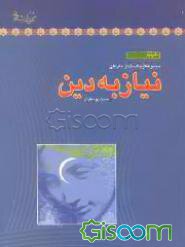Hassan Yusefian
Introduction
All praise is due to Allah, whose bounties are countless, and whose perfection is beyond what man can conceive. He is the Lord who has not left man in (a state of) negligence, but has appointed special leaders to guide him. He is the Lord who has mingled man’s constitution with a nature that seeks God and desires religion, the Lord who has appointed external guides (the Prophets) to help the internal bearer of (His) message (the intellect).
“The need for religion” is a discussion external to religion (itself). It cannot be satisfied by (mere) submission and loyalty to religions. One should ponder over the reason why there is a need for religion before he adopts one.[1]
Divine religions always hurry to help reason, freely offering man the knowledge that cannot be acquired except by (paying) a heavy price for it. This (free offer) is exemplified in the precious words of the Commander of the Faithful, Imam Ali (peace be upon him) – the ocean of revealed knowledge out of which people collect provisions according to their own capacity, thus quenching their thirst.
It is a pity that the treasurer of the Prophetic knowledge (Imam Ali, peace be upon him) was unable to locate a mind [2] ready to receive the divine knowledge, [3] for facing him were men who asked (him to tell them) how many hairs they had on their heads. [4] The sermons and memorable words of the Commander of the Faithful are, however, (similar to) an open banquet constantly welcoming the sage and the seekers of wisdom and knowledge, never leaving them empty-handed.
The present book examines the “need for religion” as Imam Ali (p.b.u.h.) has seen it, and will therefore quote his words in an attempt to achieve the reality.
[1] ) Some thinkers have tried to find a way to (prove that) this discussion is inherent in the religion. (See Muhammad Taqi Ja’fari, The philosophy of Religion, the first book, p. 100) This can be acceptable only if it means that after the external reasons have led us to religion and after we have looked into the religion for an answer to man’s basic needs, then the religion per se must be studied in details and thoroughly, so that we may know (our own) subsidiary needs (on the one hand) and (our) expectations from the religion.
[2] ) that is, a chest
[3] ) He pointed to his chest and said, ‘Knowledge is treasured here; would I find learners for it.’ The Nah al- Balaqa, memorable words section, item 147,p. 388 (Nahj al- Balaqa as edited by Dr.Sayyid Ja’far Shahidi will be the basis of discussions throughout the present book).
[4]( Ibn Abi-l Hadid, The Nahj al-Balaqa Commentary, vol. 2, p. 286












